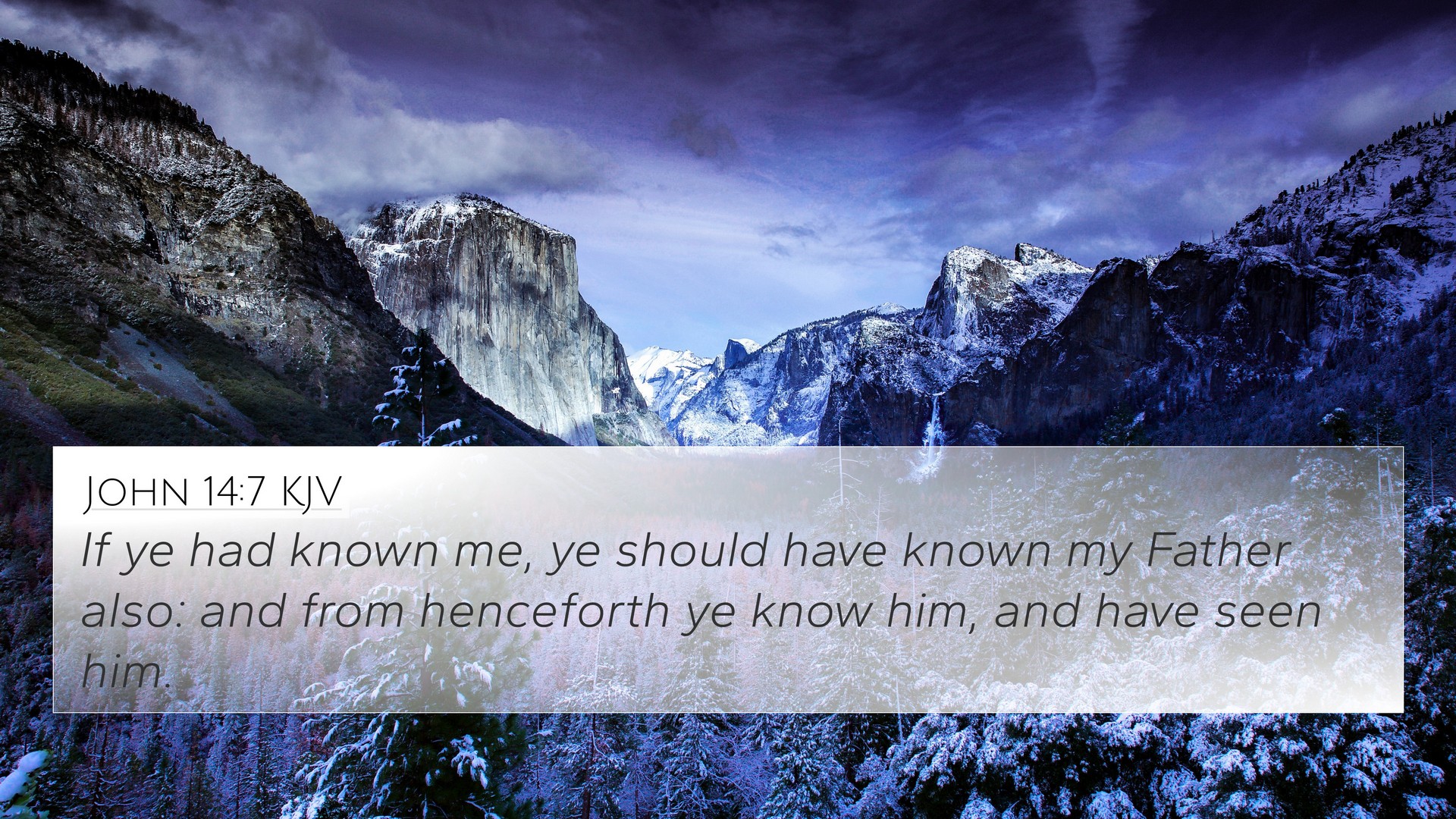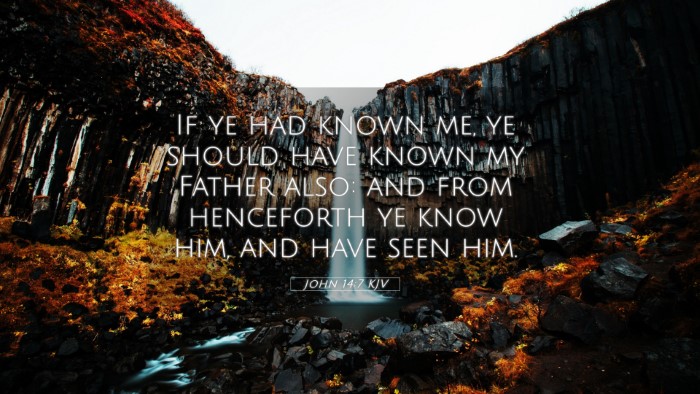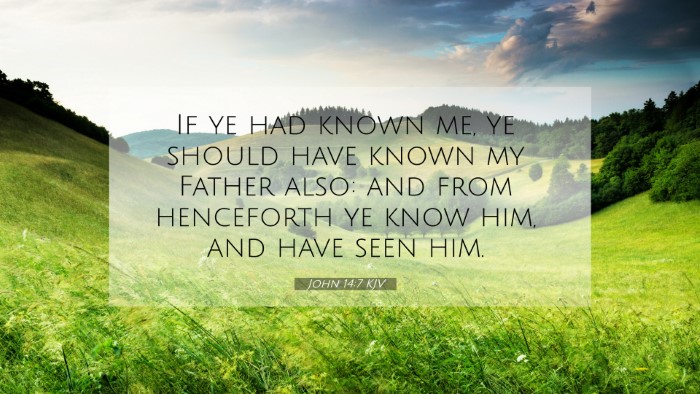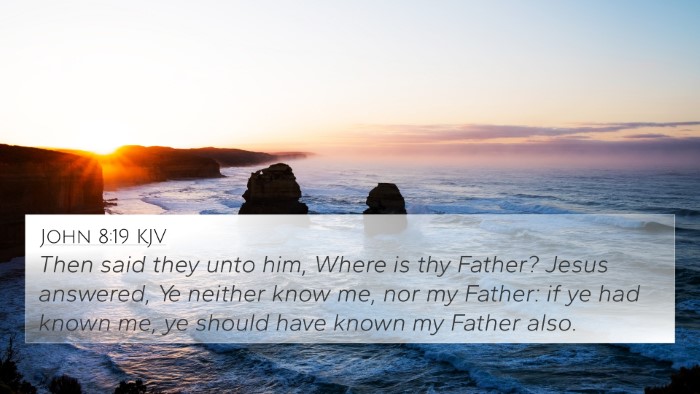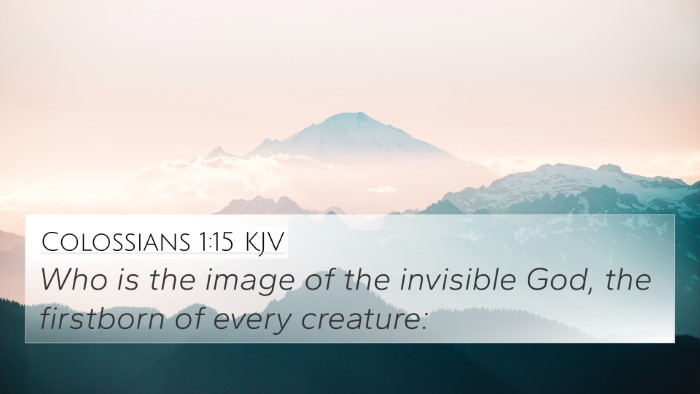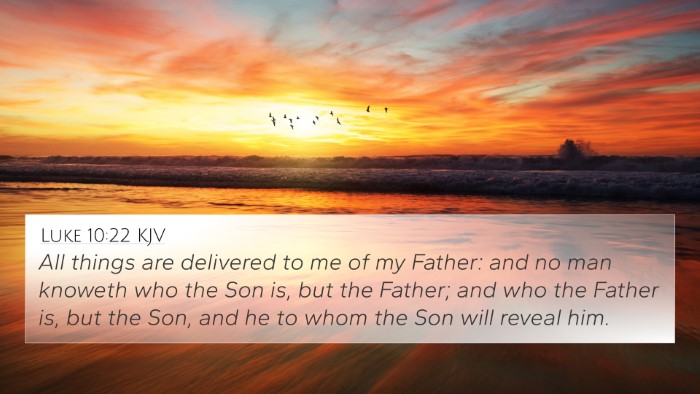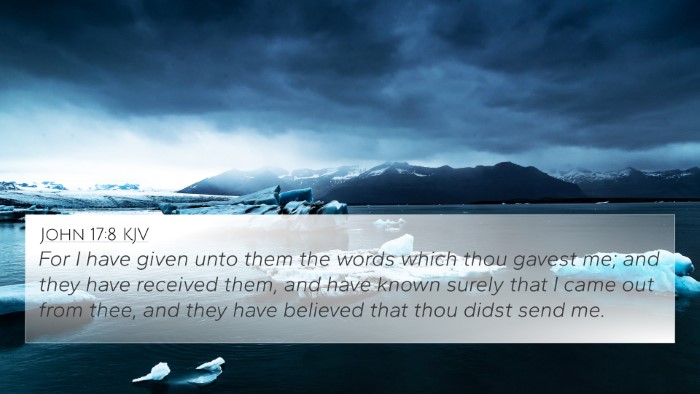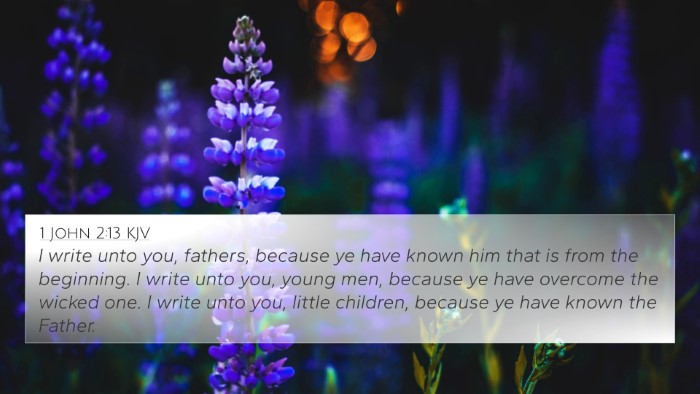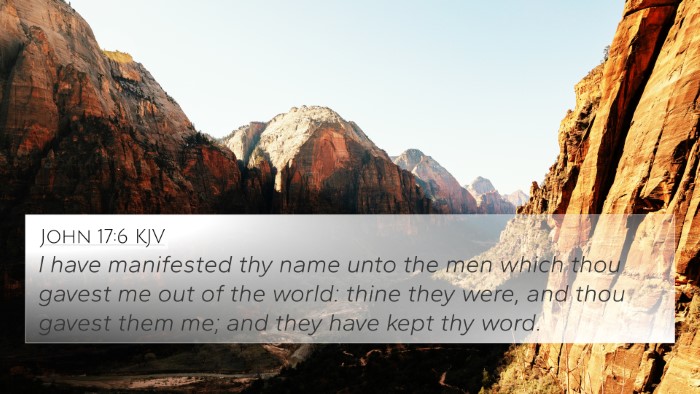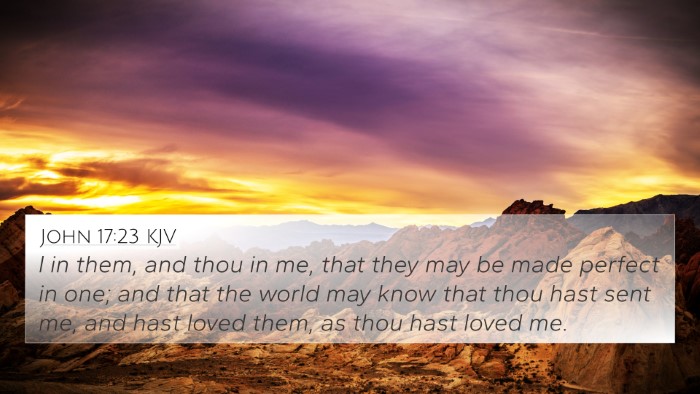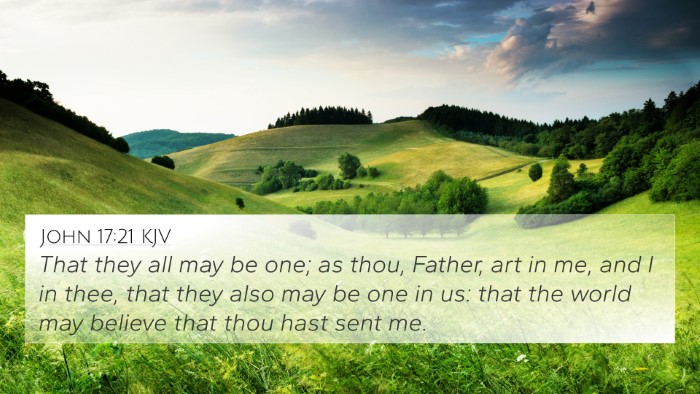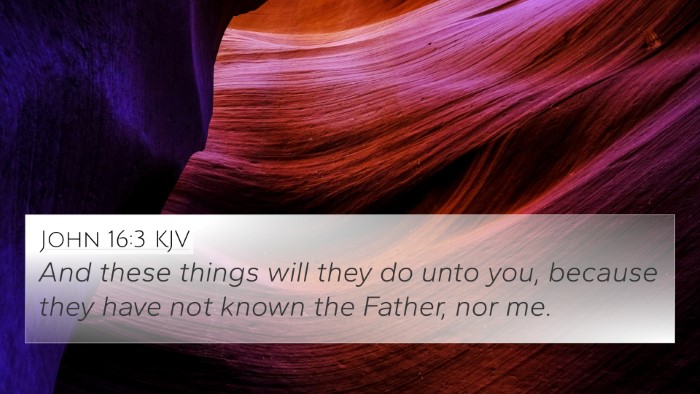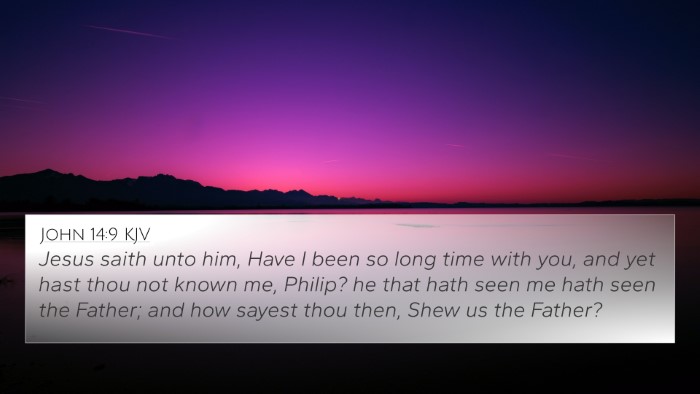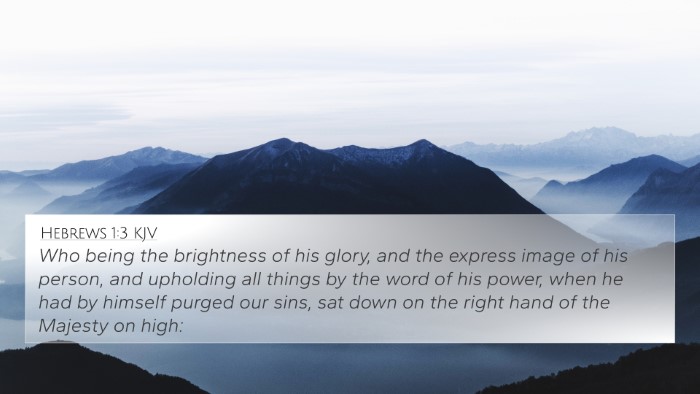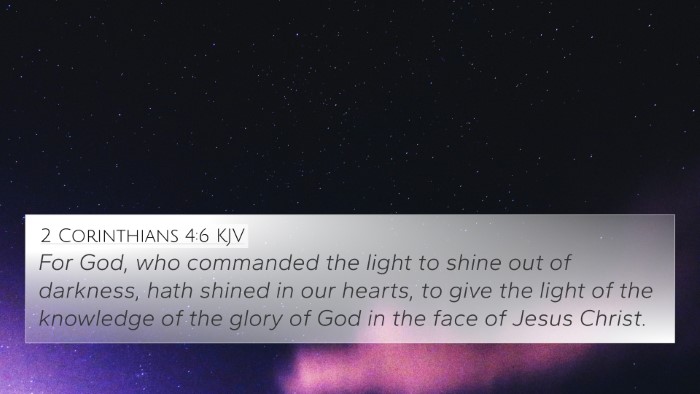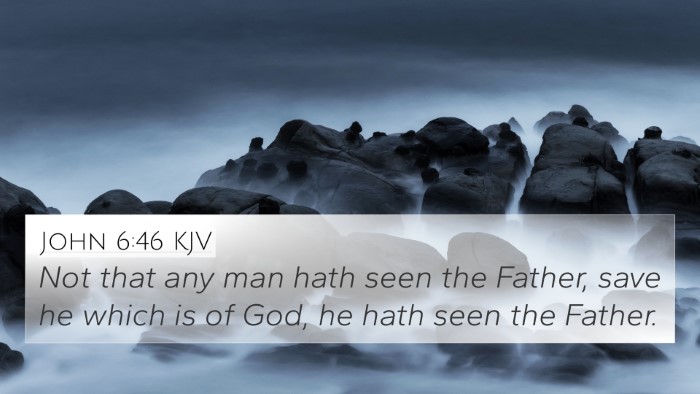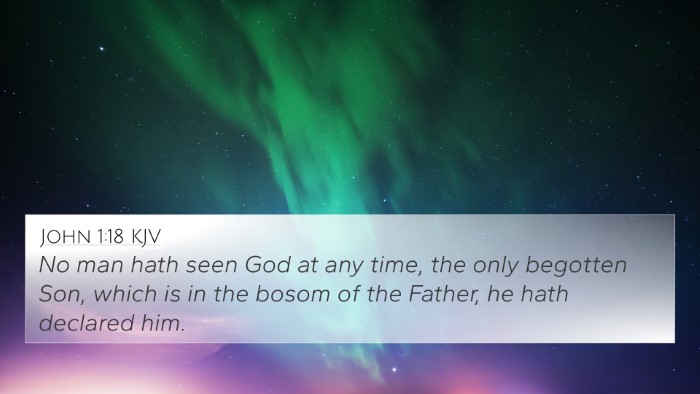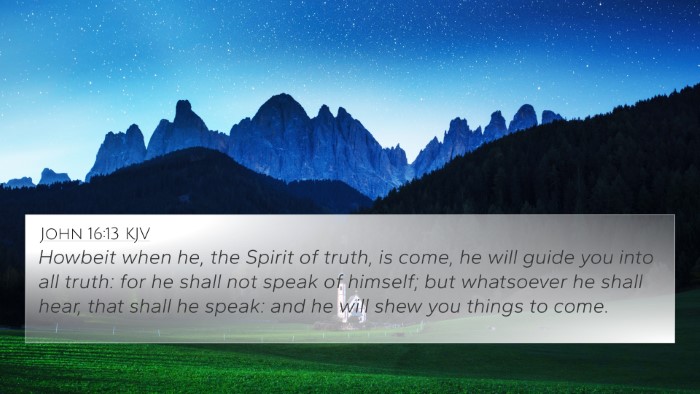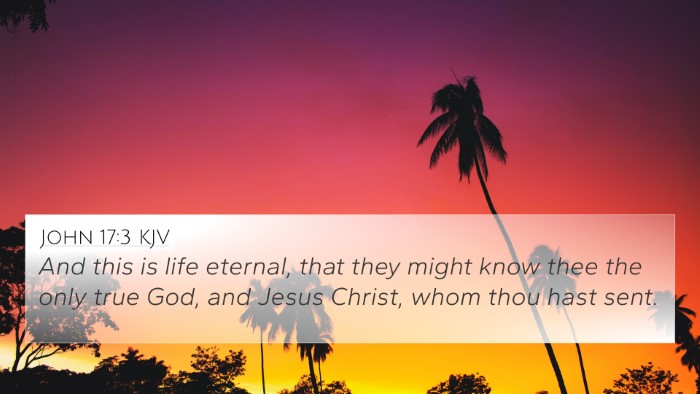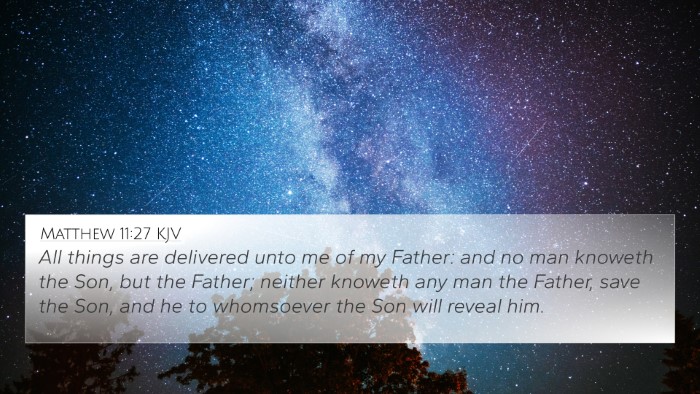Understanding John 14:7
John 14:7 states: "If you had known me, you would have known my Father also; and from now on you do know him and have seen him." This pivotal verse reveals profound insights into the relationship between Jesus and God the Father.
Interpretation and Insights
This scripture is a declaration of the essential unity of Christ with the Father, which emphasizes the significance of knowing Christ for a true understanding of God's nature. Below are insights derived from public domain commentaries by respected theologians such as Matthew Henry, Albert Barnes, and Adam Clarke.
Matthew Henry's Commentary
Matthew Henry emphasizes that to know Christ is to know God. Henry explains that Jesus reveals the Father’s character and will, encouraging believers to seek a personal relationship with the Savior. To truly understand God, one must embrace Christ, as all knowledge of God comes through Him.
Albert Barnes' Notes
Albert Barnes notes that this verse illustrates the intimate connection between Jesus and the Father. Barnes elaborates that Jesus acts as a mediator, embodying divine truths. His life and teachings serve as complete and perfect revelations of God’s nature, enabling believers to comprehend the divine more fully.
Adam Clarke's Commentary
Adam Clarke highlights that knowing Christ leads to knowing God, presenting a transformative insight. Clarke asserts that this knowledge is not merely intellectual but entails an experiential understanding of God's love and grace as manifest in Christ. The verse indicates a shift in the disciples' understanding, as they transition from being mere followers to having a relational, experiential acquaintance with God through Jesus.
Cross-References and Thematic Connections
John 14:7 connects powerfully with various other scriptures that enhance the understanding of Jesus' identity and His relationship with the Father. Cross-referencing can reveal deeper insights and clearer thematic connections within the Bible.
- John 1:18 - "No one has ever seen God; the only God, who is at the Father's side, he has made him known." This verse emphasizes the same principle that Jesus reveals God to humanity.
- Colossians 1:15 - "He is the image of the invisible God, the firstborn of all creation." This reaffirms Jesus as the revelation of God.
- Hebrews 1:3 - "He is the radiance of the glory of God and the exact imprint of his nature." This supports the notion that knowing Jesus is essential for knowing God.
- John 10:30 - "I and the Father are one." This statement illustrates the unified nature of Christ and God.
- John 17:21 - "That they may all be one, just as you, Father, are in me, and I in you, that they also may be in us." This deepens the relational aspect between believers, Jesus, and God.
- 1 John 2:23 - "No one who denies the Son has the Father. Whoever confesses the Son has the Father also." This verse connects the acknowledgment of Jesus with the recognition of God.
- Matthew 11:27 - "All things have been handed over to me by my Father, and no one knows the Son except the Father, and no one knows the Father except the Son and anyone to whom the Son chooses to reveal him." This illustrates the exclusive knowledge of God through Jesus.
Conclusion
In conclusion, John 14:7 is a profound statement about the essential unity between Jesus and God the Father. To know Jesus is to deepen one's understanding of God. The compilation of verses and interpretations highlights the significance of Christ in the framework of biblical theology.
Tools for Cross-Referencing
The examination and comparison of scripture are essential for anyone seeking deeper theological understanding. Utilizing tools such as a Bible concordance, Bible cross-reference guide, or engaging in cross-reference Bible study methods offers comprehensive resources to uncover thematic connections and the relational dynamics of biblical texts.
Implementing Cross-Referencing in Personal Study
To effectively utilize these tools, consider employing methods for identifying connections between the Old and New Testaments, or engaging in detailed cross-references between the Gospels. This can enrich your understanding of how various Bible verses relate to John 14:7.
Keywords Summary
In your study, consider the following keywords for advancing your understanding:
- Exegetical insights on biblical texts
- Comparative Bible verse analysis
- Thematic Bible verse connections
- Bible verse cross-references
- Scriptural study resources
